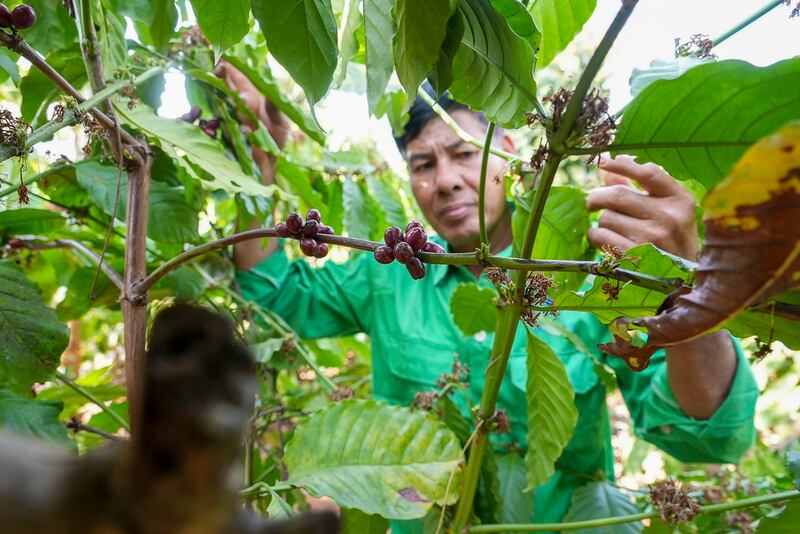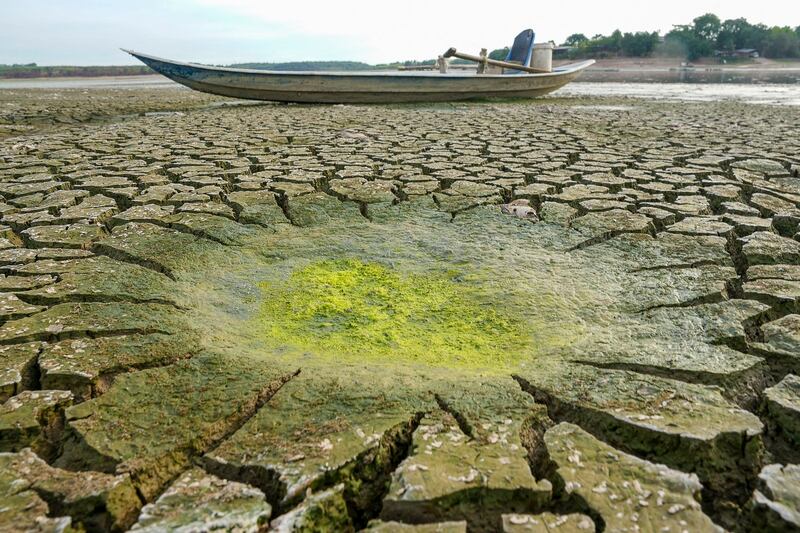A recent heat wave that depleted water levels throughout Laos has farmers worried they won’t have enough water to keep their crops alive until the beginning of the upcoming rainy season.
A Champasak province farmer told Radio Free Asia that some of his coffee trees are dying, while a farmer at the Thongmang organic agriculture cooperative in Vientiane said that all of their vegetables recently died because of the water shortage.
Some farmers are planning to buy gasoline in the next month to run water pumps as they plant rice, a farmer in northern Phongsaly province told Radio Free Asia.
“We can’t do anything but just let our trees and produce die,” he said. “We are still planning to plant rice in May and June, but we are afraid that there won’t be enough water as the rivers and creeks continue to dry up.”

In some areas of the province, there hasn’t been any substantial rain in six months, he said.
The current two week-long heat wave saw temperatures as high as 43 degrees Celsius (109 F) in Vientiane last weekend. Late last month, an advisory from the Ministry of Education and Sports urged school administrators to suspend classes when the heat rises for the sake of students’ health.
For the Champasak coffee farmer, it’s the warmest year he’s ever experienced. His farm isn’t in an area where a government water system operates, he said.
“The drought has really hit us,” he said. “This year, I expect that my coffee output yield will be low.”
He added that water shortages have become more common in the last few years in the southern provinces, but there is still no government program to help farmers address this issue.

The lack of water has also affected those who raise fish in private ponds or the Mekong River. The hot weather has raised water temperatures, leading to fish die-offs, several fish farmers said.
Laos’ numerous hydroelectric projects have also affected water levels around the country, according to a female official who is familiar with the agriculture and livestock sector in the northern provinces.
“We never saw anything like this until Chinese and foreign investors came to invest in mining and hydropower dam projects,” she said. “These actions have also caused changes in the local areas.”
Translated by Phouvong. Edited by Matt Reed and Malcolm Foster.
